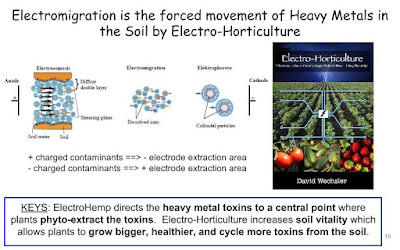Hemp, a variety of the plant Cannabis sativa, is often overshadowed by marijuana — a genetically distinct form of cannabis. Used for food, clothing, fuel, and plastics, it’s the seemingly more domestic member of the family.
However, new research suggests we should pay more attention to this nonpsychoactive substance. Hemp, scientists say, has an eco-friendly superpower: It can rid the environment of toxic chemicals.
Members of the Micmac (Mi'kmaq) Nation — a tribe indigenous to what’s now known as Canada’s eastern Maritime Provinces and parts of the northeastern United States — the activist group Upland Grassroots, and research scientists came together in 2019 to test methods for removing per- and polyfluoroalkyl substances (PFAS) from land located at the Loring Air Force Base. After years of lobbying and dispute, portions of the former bomber base were given back to the Aroostook Band of Micmacs in 2018.
On Tuesday, the eclectic team published a commentary reflecting on their work and progress in the journal Cell Press. The project, so far, is a success: Results suggest planting small fields of fiber hemp removed a primary type of PFAS at the polluted site, a chemical called perfluorooctanesulfonic acid (PFOS).
“Protecting the land is part of the Micmac beliefs,” Chief E. Peter Paul of the Micmac Nation said in the commentary. “Anything we can do to contribute to making the environment better, we want to be a part of.”
What you need to know first — The idea of removing toxic contaminants from the soil by planting certain plants is known as “phytoremediation.”
Hemp is “versatile in extracting many different kinds of chemicals from the soil,” Chelli Stanley, a member of Upland Grassroots, states in the commentary.
Previous research has also demonstrated industrial hemp can be effective in phytoremediation.
“Hemp phytoremediation has been previously used for other types of soil contaminants – mainly metals,” Sara L. Nason, one of the lead researchers on the project, tells Inverse. Nason is a scientist affiliated with the Connecticut Agricultural Experiment station.








No comments:
Post a Comment